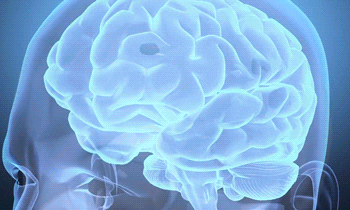Rediscover Your Health: Break Free from Nicotine and Embrace a Brighter Future
Understanding nicotine and its hold on individuals is the first step towards reclaiming autonomy and leading a healthier life. Explore the comprehensive resources below to empower yourself on your journey to quit nicotine for good.
What is Nicotine?
Nicotine, a potent stimulant found in tobacco products, hijacks the brain's reward system, inducing feelings of pleasure and euphoria. It is delivered through various methods, including smoking, vaping, oral pouches, and smokeless tobacco. When consumed, this addictive substance enters the bloodstream and binds to nicotine receptors in the brain, triggering the release of dopamine, a neurotransmitter responsible for feeling pleasure and reward. This surge of dopamine creates a temporary sense of euphoria and heightened alertness, leading to increased heart rate, elevated blood pressure, and enhanced cognitive function. Understanding the profound impact of nicotine on the body is crucial for combating its addictive grip and reclaiming control over one's health.
Overcoming Nicotine Addiction
Nicotine addiction is a complex and multifaceted condition characterized by physical dependence and psychological compulsion to use products containing nicotine despite adverse consequences. As individuals consume nicotine, their bodies naturally develop a tolerance, which can vary in severity depending on factors like genetic predisposition, frequency of use, and duration of exposure. For some, nicotine addiction may present as mild cravings and occasional use. For others, it can escalate into a chronic and debilitating dependency. Simultaneously, psychological factors such as habit, social cues, and stress can reinforce addictive behaviors.
While nicotine itself is not inherently harmful, the delivery mechanism through tobacco products like cigarettes, e-cigarettes, oral pouches like Zyn, and smokeless tobacco poses significant health risks. Chronic exposure to smoking and vaping increases the risk of serious health conditions such as lung cancer, heart disease, respiratory disorders, and stroke due to thousands of toxic chemicals and harmful substances. Additionally, nicotine addiction can negatively impact overall well-being by contributing to increased stress, anxiety, and impaired cognitive function.
Overcoming nicotine addiction requires commitment and perseverance to address both the physical and psychological aspects of dependence through effective cessation resources and support services regardless of the degree of addiction. It is essential to recognize the seriousness of nicotine addiction and take proactive steps toward recovery to reduce its harmful impact on health and quality of life.
Navigating Nicotine Withdrawal
Nicotine withdrawal occurs when individuals stop using nicotine-containing products after prolonged use. Individuals can experience various common side effects as the brain adjusts to the absence of nicotine, ranging from mild to severe. Psychological symptoms include irritability, anxiety, depression, restlessness, insomnia, and strong cravings. Physical symptoms may include headaches, increased appetite, and gastrointestinal problems. The timeline for nicotine withdrawal is different for each person. Proper withdrawal management through behavioral strategies and support is essential for successful nicotine cessation.
Your Path to Nicotine Freedom: Detox Timeline
The Nicotine Detox Timeline provides a glimpse into the short-term and long-term side effects of nicotine leaving your body. During the initial 24 to 48 hours after quitting nicotine, individuals may experience intense physical and psychological symptoms as the body detoxifies from nicotine. During the second and third days, physical discomfort may peak, accompanied by heightened psychological symptoms with intense mood swings. Physical symptoms gradually subside between days 3 and 7, although psychological effects may persist. By the end of the first week, many individuals experience a reduction in the intensity of both physical and psychological symptoms as the body adapts to the absence of nicotine.
Over the next few weeks, physical symptoms will continue to diminish, and many people report feeling more stable and in control, although occasional nicotine cravings and emotional triggers may still arise for some individuals. These will become less frequent over time. By the end of the first month, most individuals experience significant improvements in mood, energy levels, sleep patterns, and overall quality of life, signaling a successful transition away from nicotine dependence.
It's important to note that the nicotine detox timeline can vary significantly from person to person, and individual experiences may differ based on factors such as the duration and intensity of nicotine use. Creating a support team can greatly help individuals manage the challenges of nicotine withdrawal and promote long-term success in quitting smoking or vaping for good.
Motivation to Quit Nicotine
Understand Your Nicotine Delivery Device


























